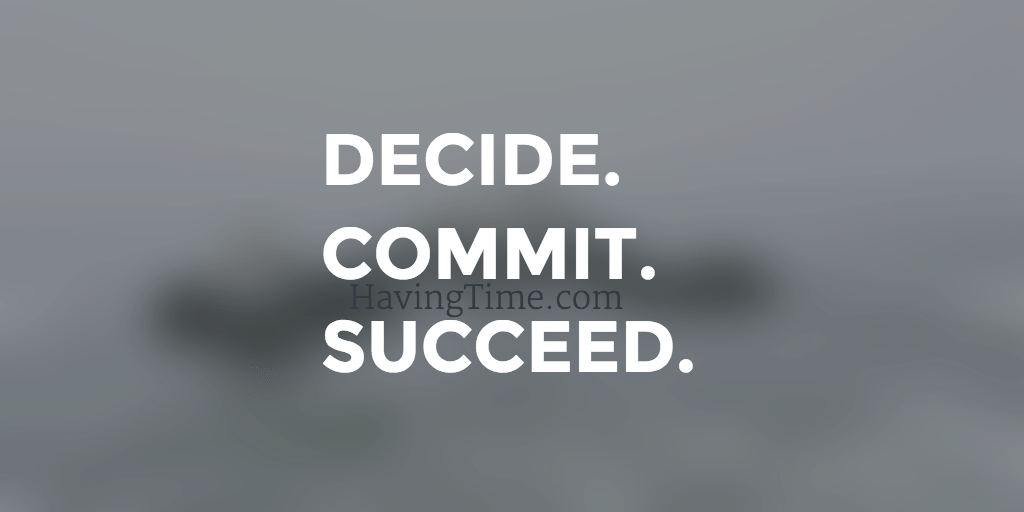
“The best time to plant a tree was 20 years ago. The second best time is now.” – Chinese proverb
There’s never a shortfall of information on kickstarting your business. In theory. When it comes to entrepreneurs sharing their practical insights about getting up and going in startups, I get my Moleskine out and take notes – talking to entrepreneurs is a good habit; because as much as I am a fan of in-depth research – no Google search fetch01ing you the latest insights could replace a face to face interaction with an actual human being that is already out there – following his dreams making the world a better place with his hot off the presses ideas.
Last week I had a fantastic opportunity to talk to Lukas Zoerner about the challenges of being an entrepreneur, especially when it comes to shaking up the status quo. I’ve met Lukas during Startupbootcamp acceleration program where I was an entrepreneur-in-residence. Lukas came across as someone so irritatingly brilliant, I couldn’t get enough of talking, and debating, and arguing with him so much so we first became frenemies, and then, good friends ;-]
In this interview, Lukas told us how being an entrepreneur is tough and yet so well worth it to get out there to pursue your dreams.
Do You Have What It Takes to Be an Entrepreneur?
Lukas, tell us, what ignited the spark in you to start your company? How did the idea for your business come about?
When I was working in a bank advising power & utility companies, I got to know the energy market quite well. But when I opened the door to my home and saw the pile of energy bills on my kitchen table, I realized that I actually had no clue of what was going on there. Am I spending too much, what shall I do? And after asking myself all these questions, I exactly did one thing – Nothing.
That’s when I realized, if I have this problem, there must be thousands of other persons who have the same problem. But you know, it’s not thousands of households, it’s almost every household in this country.
And it doesn’t stop there; it’s insurance contracts, your water bill, your mobile phone bill and so on. We are constantly being ripped off by companies who bet on the fact that we either don’t have the time to fix it or don’t know how to fix it.
This is where we at Mespo are tapping in. We are the intelligent money manager for people like you and me, analyzing where you are overspending and impartially offering you better alternatives. Once you decide what you want to do, we do all the legwork for you too, simply saving you time & money.
Lukas, when it comes to skills, what would you say are the top three skills needed to become a successful entrepreneur?
Perseverance: I think overall that perseverance is tremendously important. As an entrepreneur, you will have days where things are not going well, days where you think: “Shall I just quit? I will never make it.” But what brings you to the next level is that you just keep on pushing. No matter through how much mud you need to walk before you finally have success, just keep on walking.
Honesty: Additionally, we all should admit that we don’t know everything (yet). There are most likely people out there who know it better than you do. So go out there and ask them for help. Most of them will be more than happy to support you. This comes back to having a key circle of people who you deeply trust.
Listen to your gut: Sometimes, everyone else will tell you that you will never be able to make it with this idea. Listen carefully to their concerns, but trust your gut, even if everyone else has a different opinion.
Lukas, have you ever tasted real failure? What did you get out of that experience?
What I think is going wrong in large part of the startup scene is that when you ask anyone how they are, they will always respond: “It’s going great, everything is growing, all good!”. Even if it’s an outright lie and things are not on track, contracts are not being signed, investment rounds falling apart. When you look from the outside into the startup world, you will only see the success stories, and you will measure yourself against them. I did the same.
Once I openly started acknowledging the fact that sometimes it’s simply not going great and instead of the usual approach of hiding it, actually said: “It’s not going great”, other people opened up as well.
And by being honest & transparent about the issues, people started actively supporting me, and things got better.
On a more funny note, most likely, you also get many emails from startups asking for your honest product feedback.
In the past, I very quickly moved these emails to my bin as I couldn’t be bothered to spend the time on it. I didn’t even think about it twice.
But now I am on the receiving end, trying to get as many customers as possible to talk to us every single day. I realized how hard it is to establish a conversation and how important it is to our business to speak & listen to our customers. Since this aha-moment, I started to reply to many more emails and give my honest feedback as I now know how important it is.
Can you share a bit about motivation and what drives you forward? What gets you out of bed each morning? What is your “Why”?
The strong believe that we can create something that has a major positive impact on everyone’s life. With Mespo it’s that I love to wake up and can say: “I help people save money every day.”
What is your greatest fear, and how do you manage fear?
Managing fear is the day-to-day job of an entrepreneur. In the morning you believe you can rock almost everything, in the evening you most likely have the fear not to be able to make payroll tomorrow.
How do I manage that? I think there are three things which are helpful:
How bad can it get?: Someone once told me – If you are full of fear, ask yourself: How bad can it get? In most of the cases, you will realize quite quickly that it’s not the end of the world if you don’t get this investment tomorrow or if you don’t get the contract. Yes, it will be difficult but you will still be alive tomorrow, and the world will still be turning.
Preparation: The more you are prepared for bad (& good!) things to happen, the better you can manage them. So if something goes wrong and you can pull out a Plan B from your drawer, the fear is still there, but it has become manageable.
Lukas, when it comes to success, how do you define it? Do you believe there is some sort of pattern or formula to becoming a successful entrepreneur?
Success for me is to make as many people happy in everything I do, every day. For the avoidance of doubt, this also includes being happy myself. I believe that once you do something which makes yourself and others happy, you are on the path to success.

I think there is no such thing as a formula to become a successful entrepreneur. Of course, a good product/team/etc. Are key to build a potentially successful business, but it does not guarantee success. However, from what I see at many successful startups is that they can admit their mistakes and even more important, learn from them.
What are your hobbies? What do you do in your non-work time?
Saving money, just kidding…;-]
I am a vivid football fan trying to go to as many matches as possible.
Weirdly, I like both cities as well as nature. So you’ll find me either exploring the different parts of London or going hiking in the English countryside!
What four pieces of advice would you give to college students who want to become entrepreneurs?
1) Validate as much as you can
Go out there and validate your idea with as many people as possible. Don’t print your business cards before you aren’t sure that you have a business!
Throughout validation, refine your idea as much as you can: Who is your ideal first customer? Where do you find your customers?
A good book which helps to prepare for the phase of validation is “The Mom Test: How to talk to customers & learn if your business is a good idea when everyone is lying to you.” This approach helps you to find out if you are solving a real problem for your customers. On top, it prevents you from doing the most common mistake in the idea validation, asking: Do you think it’s a great idea?
But at the same time, make sure that sometimes you need to take a risk and build something customers don’t even know possible.
2) Build a trusted team around you
If you want to be successful, you need to work in a team that you believe.
But don’t only hire people who are good at one thing, hire people who can do more than that.
In the first months of a startup, every team member needs to be able to jump on other tasks as well. Get your hands dirty!
3) Ask for help
You don’t know everything (yet). It’s absolutely okay to ask for help and support. This holds not only true for your first steps as an entrepreneur, but throughout the entire journey!
The people who you ask for support, you can call them mentors, advisors, you-name-it, but in my opinion, it finally comes down to the question: Will they keep you up in the bad days of building your startup, fix the weaknesses together with you and elevate the startup to the next level?
It might make sense for you, in particular, if you are a first-time entrepreneur to join an accelerator/incubator program. We have tremendously benefitted from Startupbootcamp and would do it again at any time!
4) Do it
Preparation & planning is important. But I believe execution is even more important.
After you have validated your idea, get out there and build your first prototype. It will look awful, but you will quite quickly find out if your value proposition makes sense, if you are attracting the right users, etc.
On this note, I love Buffer’s story of building an MVP. Even while being a student, you can build these prototypes easily and get out there to your (future) customers.
Throughout the Startupbootcamp FinTech accelerator program, we tested some side ideas with exactly this approach, and we did get great feedback from people.
You know that I am a hopeless bookworm as much as the rest of havingtimers;-], so I have to ask you about this before you go, what are the three books that inspired you the most?
Eine Wortmeldung (in German) – It’s a book by former Austrian president Heinz Fischer. He writes about his life experience and how this defined his personal & political journey. It’s an interesting read about the European Union and the importance of collaboration between countries during difficult times. Not only because of Brexit, an interesting read.
Tuesdays With Morrie: An old man, a young man, and life’s greatest lesson – It’s a story about a former student who lost touch with his old college professor (his former mentor) throughout life. However, when they finally meet again 20 years later, the professor is dying from a disease. The professor and the pupil meet several times to talk about life from different angles. It’s an Interesting read as it offers you a great perspective on life.
The Mom Test – It’s a book that discusses in detail how to talk to customers & learn if your business is a good idea when everyone is lying to you. Your mom will always tell you that it’s a very good idea, even if it’s not. But is this true validation?
Final Thoughts
These days, it often seems like almost every person I meet wants to become an entrepreneur. Why? Because they probably watched “The Social Network” and heard all the mind-boggling success stories about the cool young kids who started their companies and became billionaires! All sounds good and irritatingly fascinating, doesn’t it? Here’s a thing, what they seldom hear about is the extremely tough bumpy road it takes to get there –the brutal fight on a daily basis to survive and thrive and the never-ending story of persistence and the many sleepless allnighters you have to put up with…
In these series of Founder Stories, we are going to talk more and more about what it actually takes to become an entrepreneur and thrive. So stay tuned and share your experiences in the comment section below!


